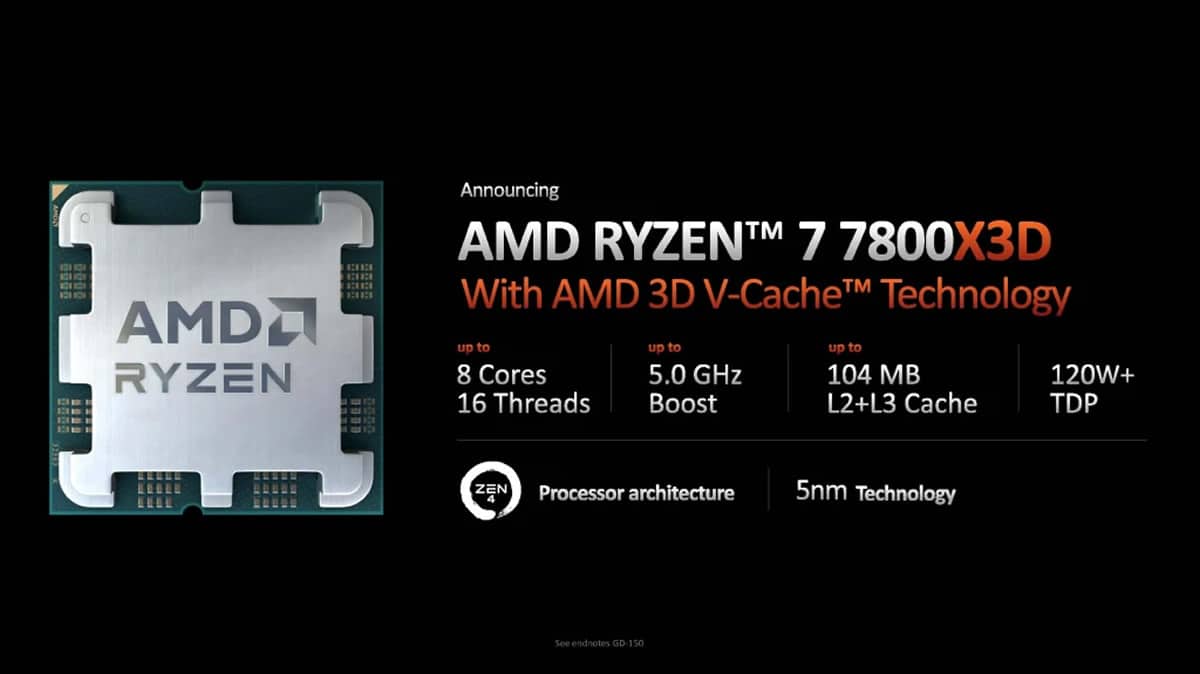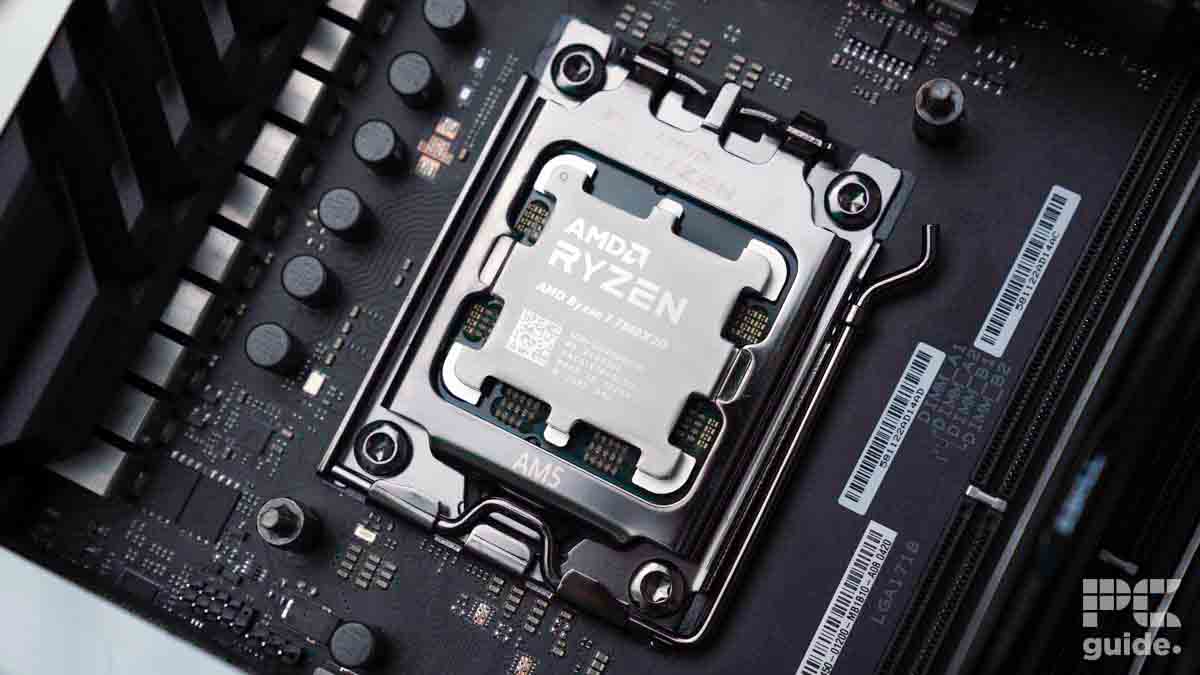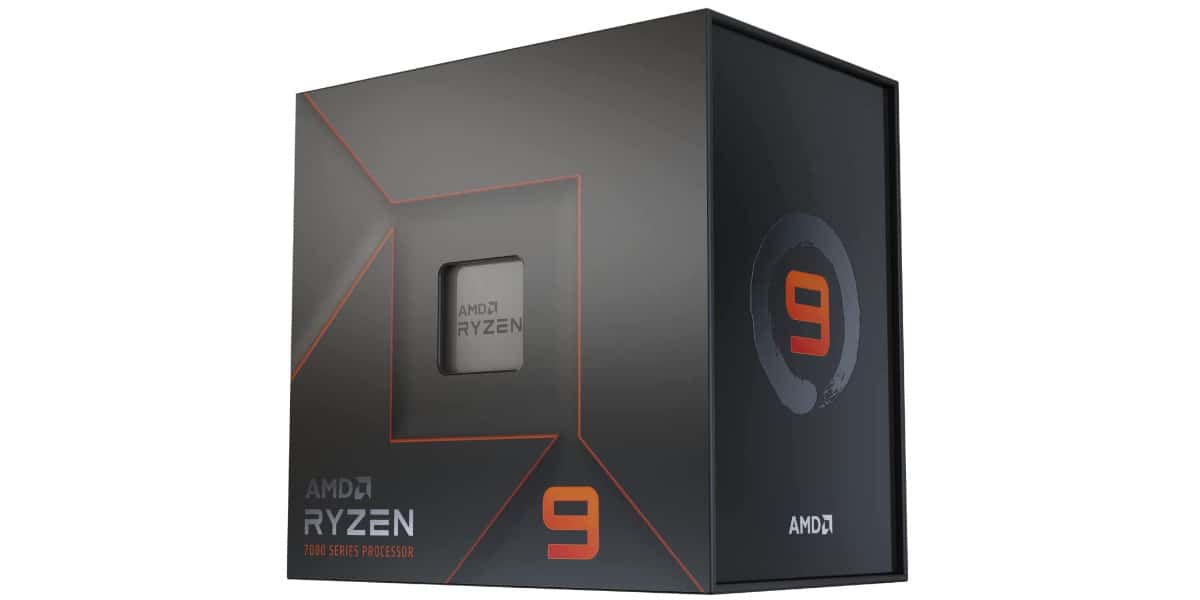Ryzen 7 7800X3D vs Ryzen 9 7900X

Table of Contents
The constant advancement in technology has led to the development of powerful CPUs that cater to the diverse needs of users. The Ryzen 7 7800X3D vs the Ryzen 9 7900X will see two of the latest releases from AMD go head to head in an all-out bout of specs and pricing. Both chips boast impressive specs and performance. However, they are designed for different users with varying needs.
Therefore, choosing the right CPU for your specific use case can be challenging. In this article, we will take an in-depth look at the specs and performance of these two processors, providing you with valuable information to help you make an informed decision.
Ryzen 7 7800X3D vs Ryzen 9 7900X: Specs
In terms of core count, the Ryzen 9 7900X has an advantage with 12 cores and 24 threads compared to the Ryzen 7 7800X3D’s 8 cores and 16 threads. This makes the Ryzen 9 7900X better suited for demanding tasks that require high core counts such as video rendering, 3D modeling, and virtualization.
However, the Ryzen 7 7800X3D has a higher base clock speed at 4.4GHz compared to the Ryzen 9 7900X’s 4.7GHz. The boost clock speed for the Ryzen 9 7900X is higher at 5.6GHz, while the Ryzen 7 7800X3D has a boost clock speed of 5GHz. These clock speed differences may result in better single-core performance for the Ryzen 7 7800X3D, making it a better choice for gaming.
| Specs | Ryzen 9 7900X | Ryzen 7 7800X3D |
|---|---|---|
| Generation | Zen 4 | Zen 4 |
| Cores / Threads | 12 / 24 | 8 / 16 |
| Base clock speed / boost clock speed | 4.7GHz / 5.6GHz | 4.4GHz / 5 GHz |
| Cache L3 | 64MB | 96MB |
| TDP | 170W | 120W |
| Launch MSRP | $549 | $449 |
The X3D CPUs’ cache plays a vital role in their overall performance, and AMD has improved it significantly through their innovative Infinity Cache technology, resulting in the impressive 3D V-cache. When comparing the Ryzen 7 7800X3D and the Ryzen 9 7900X, we can see that the former has an edge with 96MB of L3 cache, while the latter has 64MB of L3 cache. This larger cache size can offer improved performance in tasks that demand the processing and storage of large volumes of data.
In terms of TDP, the Ryzen 9 7900X has a higher TDP of 170W compared to the Ryzen 7 7800X3D’s 120W TDP. This means that the Ryzen 9 7900X consumes more power and generates more heat, which may require a more robust cooling solution.
Ryzen 7 7800X3D vs Ryzen 9 7900X: Performance
Based on various public benchmarks, it is clear that the Ryzen 9 7900X is the better performer in multi-core tasks when compared to the Ryzen 7 7800X3D. The Ryzen 9 7900X comes with 12 cores and 24 threads, which gives it an edge over the Ryzen 7 7800X3D which has only 8 cores and 16 threads. As a result, the Ryzen 9 7900X is the ideal choice for demanding workloads like video rendering, 3D modeling, and scientific simulations that require multi-core performance.
On the other hand, the Ryzen 7 7800X3D performs better in single-core tasks as compared to the Ryzen 9 7900X. This makes it a better option for users who require high single-core performance, like gamers and some productivity applications. Furthermore, the Ryzen 7 7800X3D’s advantage in L3 cache can also lead to better performance in tasks that require large amounts of data to be processed and stored.
Therefore, when choosing between these two CPUs, it is important to consider the specific tasks you will be performing and whether single-core or multi-core performance is more critical to your needs.
Ryzen 7 7800X3D vs Ryzen 9 7900X: Price
Looking at the launch MSRP, the Ryzen 7 7800X3D has a lower price than the Ryzen 9 7900X, with a difference of $100. This makes the Ryzen 7 7800X3D a more budget-friendly option for users who want a high-performance CPU without spending too much money.
However, it is important to note that prices can fluctuate over time and can vary depending on the region and the retailer. Additionally, other factors such as availability and demand can also affect the price. So, it is always a good idea to do research and compare prices before making a purchase.
If you're looking for the perfect gaming PC, the Ryzen 7 7800X3D takes the empty space the 5800X3D leaves perfectly and improves over it. We consider price a vital aspect that makes this CPU the perfect sweet spot.
Ryzen 7 7800X3D vs Ryzen 9 7900X: Conclusion
In conclusion, the Ryzen 9 7900X and Ryzen 7 7800X3D are two great CPUs from AMD that cater to different needs. The Ryzen 9 7900X is aimed at users who require high performance for demanding tasks such as video rendering and scientific simulations, while the Ryzen 7 7800X3D is a better option for users who prioritize single-core performance for tasks such as gaming and productivity applications.
The Ryzen 9 7900X outperforms the Ryzen 7 7800X3D in multi-core performance, thanks to its 12 cores and 24 threads, but the Ryzen 7 7800X3D has some advantages in single-core performance. Additionally, the Ryzen 7 7800X3D has a lower TDP and lower price compared to the Ryzen 9 7900X, making it an attractive option for users on a budget.
Ultimately, the choice between the Ryzen 9 7900X and Ryzen 7 7800X3D will depend on the user’s specific needs and budget.
- NOW READ – Where to buy the Ryzen 7 7800X3D


